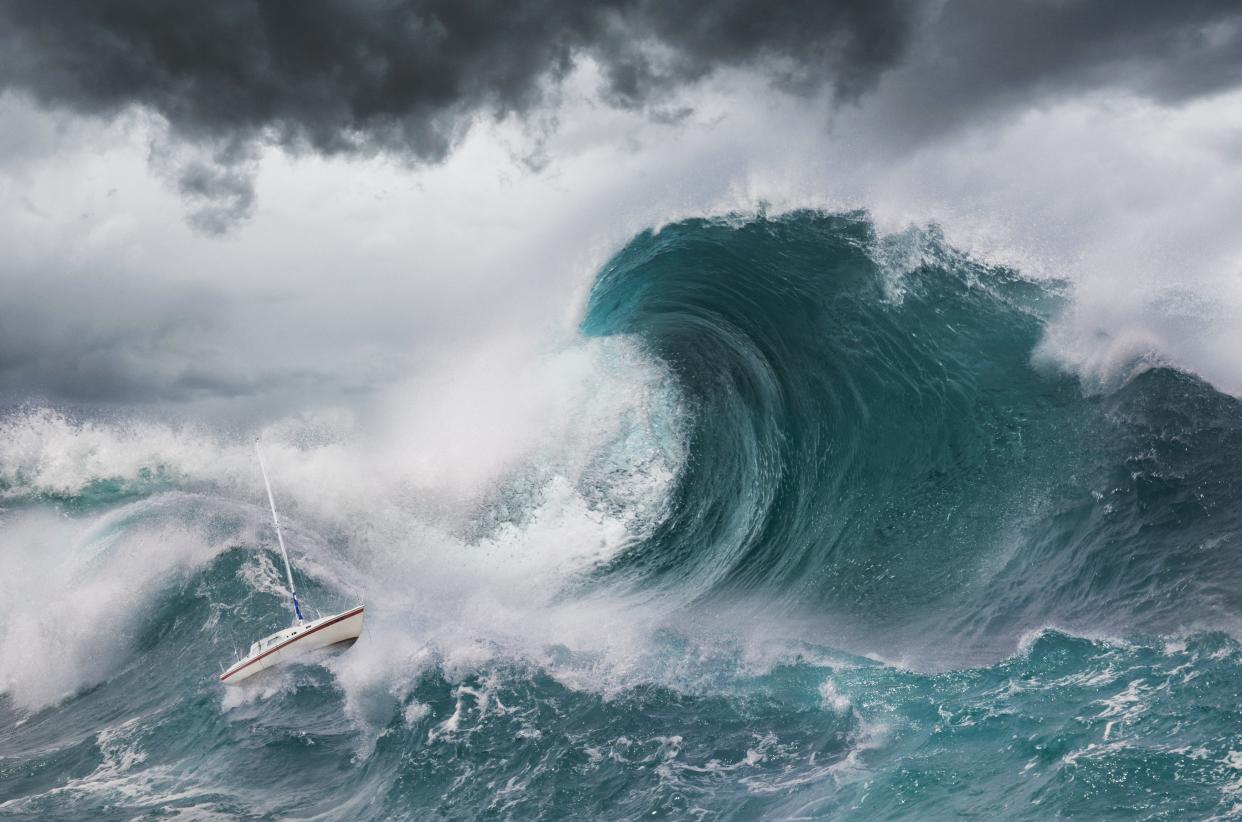Tsunami risk in Britain ‘is far higher than previously realised’

Could coastal towns in Britain really face the devastation unleashed by a tsunami? The risk is actually far higher than anyone realised, according to new research.
Geographers working in Shetland found evidence of two previously unknown tsunamis that hit the islands – hinting that the events are far more common than realised.
Previously, it had been believed that the devastation unleashed by the ‘Storegga Slide’, an underwater landslide off Norway 8,000 years ago, had been a near-unique event.
Sue Dawson from the University of Dundee said, ‘We found sands aged 5,000 and 1,500 years old at multiple locations in Shetland, up to 43ft above sea level.
READ MORE ON YAHOO UK
Fred and Rose West’s daughter fears her parents ‘killed 30 more women’
Triathlete banned from all-you-can-eat sushi restaurant after downing 100 dishes
Watch: Ryanair passengers films baggage handler stealing from suitcase
In pictures: China’s Typhoon Mangkhut forces 2.5 million to evacuate
This picture of an ‘invisible’ car is blowing peoples’ minds online
‘These deposits have a similar sediment character as the Storegga event and can therefore be linked to tsunami inundation.’
The researchers analysed sand debris in lochs in Shetland to make their conclusion, Science Alert reported.
Researcher Dave Tappin of the British Geological Survey said, ‘They’re much higher frequency, and 1,500 years ago is very, very recent.
‘It means that the hazard – the risk – is far more serious than we thought previously.’
In general, tsunamis are extremely rare in Britain, although the coast of Cornwall was hit by a nine-foot wave in 1755 after an earthquake in Lisbon.
Underwater landslides are thought to be triggered by earthquakes, but scientists are still trying to understand how they happen.
The researchers now aim to simulate the two tsunami 1,500 and 5,000 years ago, to understand how an underwater landslide could have triggered them.
Underwater landslides can occur anywhere in the ocean, the researchers believe.
Dave Tappin said, ‘Submarine landslides can also occur on slopes of just one or two degrees, and we still don’t know exactly how they are set in motion, except that earthquakes are considered to be the most common trigger.
‘It is critical that we learn more.’


